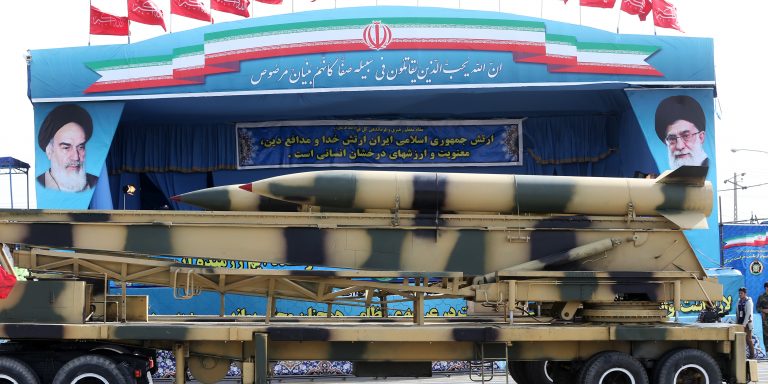INTELBRIEF
November 8, 2017
TSC IntelBrief: Iran and Saudi Arabia Edge Towards Direct Conflict

• On November 6, Saudi Arabia publicly accused Iran of committing ‘an act of war’ two days after intercepting a ballistic missile launched from Yemen.
• Escalating tensions with Tehran combined with a startling internal purge suggest Saudi foreign policy is undergoing a dramatic shift.
• Rather than seek to lower regional tensions, the U.S. is fully and openly backing aggressive Saudi moves.
• From the Gulf to Lebanon, Saudi Arabia views every issue through the lens of its regional struggle with Iran, with a greater conflict very likely.
Saudi Crown Prince Mohammad bin Salman is matching his unprecedented efforts to consolidate state power with an unprecedented escalation of long-building tensions between Saudi Arabia and Iran. It is clear Riyadh has decided status quo policies in its regional struggle with Iran have failed and that Saudi rulers are edging towards more direct confrontations with Tehran. While the consequences of this new posture are uncertain, they will likely be crucial for the region, world energy markets, and the U.S., which is openly supporting Riyadh.
On November 4, Saudi missile defenses intercepted a Burkhan H2 ballistic missile that flew at least 530 miles from Yemen, on its way to Riyadh’s King Khaled International Airport. Media outlets aligned with Yemen’s Iranian-backed Houthi rebels have confirmed both the launch and the target. It is the second time a ballistic missile has been launched from Yemen into Saudi Arabia; the first, launched last July, was intercepted and destroyed as it flew towards Mecca.
The war in Yemen, with a Saudi-led coalition fighting Iranian-backed Houthi rebels, has seen the United Nations and many humanitarian organizations accuse both sides of possible war crimes against civilians. The latest launch of a ballistic missile against a civilian population adds a new crime to the list.
On November 6, Saudi Foreign Minister Adel al-Jubeir told CNN the device was an Iranian missile, smuggled into Yemen in pieces, then assembled and launched by ’operatives from the Iranian Revolutionary Guards and Hizballah' from territory occupied by the Houthis. There has been no publicly-known, independent corroboration of Saudi claims that the missile came from Iran; though Tehran backs the Houthis and has tried smuggling weapons into Yemen, despite a naval blockade. The attack on Riyadh also coincided with Crown Prince Mohammed bin Salman’s internal purge, described as a long-overdue anti-corruption campaign. Combined with the odd resignation of Lebanese Prime Minister Sa’ad Hariri, broadcast from Riyadh on November 4, the events have added to the sense of that Saudi foreign policy is undergoing a dramatic shift.
Rather than urge Riyadh to try caution and diplomacy in its domestic and foreign affairs, the U.S. has offered full and open support for its recent moves. On November 6, President Donald Trump tweeted he had ‘great confidence in King Salman and the Crown Prince of Saudi Arabia, they know exactly what they are doing … Some of those they are harshly treating have been “milking” their country for years!’ As for Iran, an aggressive posture towards Riyadh has been a consistent theme of Trump administration foreign policy; from seeking to rip up the multilateral nuclear deal, to rolling back Iranian influence across the region. Based on recent developments, it seems both Crown Prince and President Trump agree that complicated regional issues and crises are being driven by some larger scheme, authored in Tehran.
It is unclear just how far the U.S. will back Saudi moves against Iran, though increased support for the Yemen war is a likely minimum. It is also unclear just how far Riyadh will push its direct confrontation with Iran. Saudi Arabia followed the latest ballistic missile intercept with its most intensive air strikes over Yemen’s capital, Sana’a, in more than a year. However, devising military options against Iran would be far more complicated. Riyadh may respond to the attempted missile strike with attacks on Iranian proxies or allies, punishing the Houthi rebels or Lebanese Hizballah — though just where and how the latter could be targeted is a complex issue indeed. Meanwhile, Lebanese Prime Minister Hariri’s televised resignation is another example of how Riyadh might seek to undermine Iran and Hizbollah in Lebanon, opening a political front in a proxy war with increasing consequences for all involved.
.
For tailored research and analysis, please contact: info@thesoufancenter.org
.
.